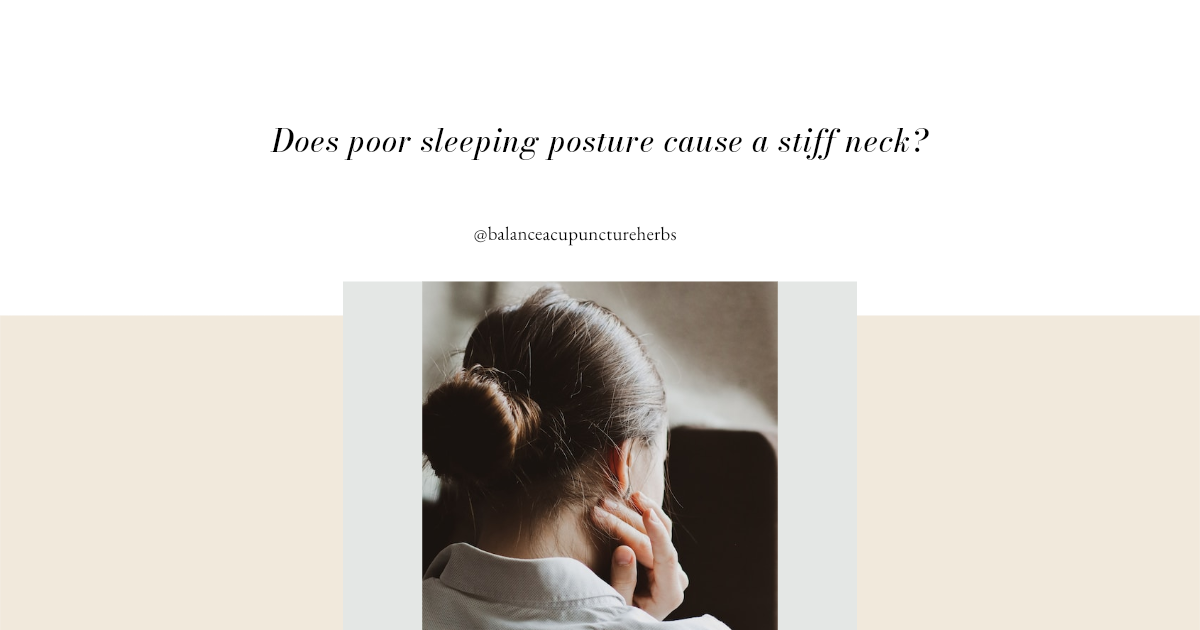
Vertigo can be pretty painful. Can acupuncture help?
August 18, 2023
Does poor sleeping posture cause a stiff neck?
September 12, 2023|
Getting your Trinity Audio player ready...
|
Do you experience brain fog?
The lifestyle of modern people has changed. Due to stress, excessive use of electronic products, extreme information volume, and frequent multitasking, it is easy to cause inattention and sudden blankness. The ability to think these are the factors that trigger brain fog. However, it is also a warning signal released by the brain, indicating that it is time to rest or repair the state of fatigue. If there is no way to improve the brain fog for a long time, it is very likely to cause brain damage and even gradually affect the health of the body. Brain fog is one of the early symptoms of many brain-related diseases; allowing brain fog to develop may lead to obesity, anxiety, depression, dementia, and even Alzheimer’s.
Recent studies have shown that chronic neuroinflammation, mainly from intestinal leakage and mitochondrial apoptosis, is the leading cause of brain fog. Additionally, the new coronavirus epidemic has been found to worsen brain fog. Closed (blockade, isolation) life is more likely to cause brain fog, but after unblocking, people who go out more often can improve brain fog conditions faster.
What are the symptoms of brain fog?
Some symptoms include difficulty concentrating, prolonged task completion time, and trouble focusing for extended periods.
Forgetfulness: Memory loss, short-term memory loss, often forgetting or having difficulty remembering essential things, slurring words, or forgetting what to say to the other party.
Challenges with multitasking, planning, and organizing: Deterioration of thinking and comprehension; inability to express ideas accurately; difficulty in understanding basic concepts; slow thinking and difficulty in making decisions; thoughts that could be easily clarified, but the mind is just chaotic.
Feeling mentally “cloudy,” “spacey,” or “fuzzy”: Drowsy and tired physically and mentally, feeling like you can’t get enough sleep, lack of interest in daily life, irritability, emotional and physical discomfort, such as headache, dizziness, blurred vision, tinnitus, brain ringing, Head bloating, or light-headedness.
How to improve brain fog?
You don’t need to worry if you experience occasional brain fog. Here are five ways to improve it:
1. Change your diet
Try replacing processed foods with whole grains, high-quality protein, and dark green vegetables. Choose fish rich in Omega-3 and supplement your diet with beans, nuts, and avocados. Use healthy fats like olive oil and avoid red meat.
Refined carbohydrates, such as cakes, candies, and fruit juices, can cause a sharp rise in blood sugar levels, inflammation, oxidative stress, and harm to gut bacteria. Eating more nutritious food and avoiding excessive artificial additives and condiment intake can help stabilize blood sugar and metabolism.
2. Reduce stress
After working for 90 minutes, take a break to walk around, drink water, and socialize. Avoid mental overload by limiting mobile phone usage and finding stress-relieving activities. Confide in loved ones.
3. Improve sleep
Failure to get sufficient deep sleep will have severe consequences on your body and brain. Sleep is essential as it repairs the brain and consolidates memories. So, it’s imperative that you have a restful sleep every night.
A 2020 Stanford study found that spending a few minutes outdoors at sunrise and before sunset can help regulate your sleep-wake cycle and improve brain function.
4. Regular exercise
Maintaining a routine of exercise and outdoor activities improves brain function, cardiovascular health, and musculoskeletal strength while enhancing mood stability and happiness.
Research has shown that engaging in mentally stimulating activities can reduce the risk of developing dementia by nearly 50%. These activities include maintaining curiosity, exploring new things, attending courses, learning new skills, and reading books, newspapers, and magazines.
Engaging in social activities can lower the risk of dementia by 40%.
In addition to regulating bodily functions such as stomach, sleep, and emotions, herbal medicine and acupuncture can help combat brain fog. More.
Read More:
Acupuncture and Herbal Medicine Have a Solution to Delay “Dementia.”
How Can Basal Body Temperature (BBT) Help You Understand Your Fertility?
[wpseo_address show_state=”1″ show_country=”1″ show_phone=”1″ show_phone_2=”0″ show_fax=”0″ show_email=”0″ show_logo=”0″]
[wpseo_map max_number=”undefined” width=”400″ height=”300″ zoom=”-1″ map_style=”roadmap” scrollable=”1″ draggable=”1″ show_route=”0″ show_state=”0″ show_phone=”1″ show_phone_2=”0″ show_fax=”0″]
Reference:
Dementia Risk Reduction-CDC




